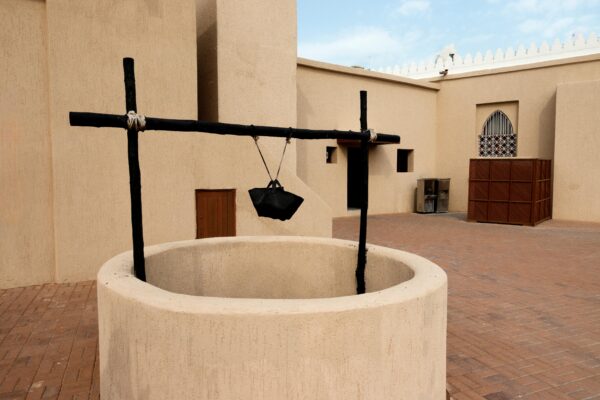
6 Wealth-Building Lessons from Khadijah (RA) Every Muslim Should Know
03 December 2025 8 min read


Ibrahim Khan
Co-founder
10 min read
Last updated on:
There is a dizzying range of car finance options available on the market – from PCP, PCH, to HP and others. But it is difficult as a Muslim to navigate this financial journey as you are unsure if what is being offered is haram or halal.
The aim of this article is to point you in the right direction.
Before you even think about going down the finance route, consider buying in cash.
If you have the savings to buy in cash and can afford to spend that money, then buying in cash could make a lot of sense.
The reason is because you’ll end up paying around 4-10% APR on any car finance. That means if you borrow £1000 you will be paying between £40-100 back every year. At the same time, if you’d saved that £1000 you would make back around £20 if you’re lucky (as interest rates are low).
So it is better for you in this situation to pay using cash, and avoid paying that £40-100.
The only situation where it is better to go for car finance is if you can find an investment that will yield you more than you will save in interest. But for that you need to find an investment returning more than 4-10% – which is pretty hard.
Another route to consider is the 0% credit cards. If you are confident you will be able to pay them off before having to pay any interest, then they are a clever way of getting an interest-free loan to pay for your car.
Do note though that you will have to pay an admin fee to get access to this interest-free loan. That is fine from a sharia perspective as its just an admin fee, but of course commercially it is money you have to part with, so do factor that into your calculations.
Sometimes a company may offer you a finance option due to the additional perks that come with it. Dealers gets paid handsomely by finance companies so want to get you to use them.
However, if you can pay the entire amount the week after without incurring any actual finance costs and get all the perks they might be offering for taking the finance – then that’s all fine.
A hire purchase agreement involves you paying a deposit on the car, with the remaining amount being purchased by the lender.
To give a clear example:
The Islamic Fiqh Council have opined on hire purchase agreements previously and their important conclusions were:
Every hire purchase agreement is different so it’s important to read it carefully, but in principle hire purchase agreements should be permissible. But things to watch for include:
You can’t sell or modify the car without the finance company’s permission. This is helpful form an Islamic analysis as it confirm that the ownership is with the financing company.
Also, note that under the Consumer Credit Act you can actually walk away from the hire purchase and just hand the car back to the dealer once you’ve made half your payments. Sometimes agreements try to carve this out, but if this is not carved out, that alone really helps the Islamic analysis and shows this is a genuine hiring agreement.
A note on entering into a contract that on the face of it has “interest rate” and “APR” coming up every so often. Islam does not look at words, it looks at what is going on and here what is going on is a straightforward hire and then purchase.
Yes, it has been couched in financing terms as that is how the financing companies like it (largely because they’re used to it, the law is developed around this, and its all very predictable) but the interest rate is fixed and being worked out on the basis of the car’s value, not LIBOR or the base rate.
PCPs are another car finance agreement. They are structurally similar to an HP agreement in that you pay a deposit, and effectively hire the car from the financier until the end of the term.
Typically they are cheaper than a HP though – as the finance is based on the value of the car at the start minus its value at the end. That means you are not financed the full value of the car so the payment is cheaper.
But the difference with the HP is that at the end of your term you have the option of handing back the car and calling it quits, or paying a balloon payment on the residual value of the car in order to own the car outright.
Typically, hire purchase agreements are better for people with worse credit history and PCPs are more accessible for people with better credit histories.
The commercial driver with the PCP is that you are guaranteed a future value. So, if the car happens to be worth more than that amount, you can use that as equity for your next car. The whole process also works for dealers nicely as it gets people in this habit of switching cars.
The thing that throws people when they initially read the contracts is that it is written as a loan agreement, uses the term “interest rate” and “APR” and comes across as haram.
However there are a few crucial things to remember here:
However under HP and PCP contracts, the “interest rate” is worked out on the basis of the value of the car (under a HP) or the value of the car minus the residual value at the end of the term (under a PCP). So, from the bank’s commercial perspective they are treating this as a loan.
However, the crucial difference between a loan and a hire of an asset is the ownership of the asset. Under a loan, you the borrower own the asset, you just owe the financier the money you used to pay for the asset.
Under a hire of an asset you do not own the asset and you are paying the owner monthly for the right to use the asset.
With a PCP you very definitely do not own the car. So, at a high level, a PCP contract should be sharia-compliant.
The issue of there being two contracts in one which arises with the HP does not arise here, though the issue of the liability of ownership being borne by the owner (i.e. paying the insurance) still exists here. Again, it is not a deal-breaker but it is definitely better if the financing company agrees to pay the insurance (even if they roll up the payment into the overall finance amount).
However, as with all these things, the devil is in the legal detail. If you are reading this and have a draft PCP or HP contract that you would like us to review, we are more than happy to do so and then we’ll keep updating the article in light of the agreements we are seeing.
Under a PCP you are usually allowed to part-exchange your vehicle in at the end of the term and upgrade to a newer car under a new PCP. There is a technical problem with this as the payments you will have made thus far will have been a deposit and then monthly payments.
But the monthly payments were rental payments and now you are benefiting from them as if they were payments to purchase the car so that you accrued equity in it.
So which one is it?
Because if it’s an equity payment that looks to me like you are increasing your ownership in the property and that bring it closer to a loan picture. But if it is pure leasing and you’re not building up equity in the car, then that is closer to the hiring picture.
There is an incredible diversity in the market on how refinancing a PCP is handled, so it’s hard to give precise guidance. Typically though, this is a non-issue as your lease payment is just treated as a hire payment and doesn’t give you any extra equity. For the rare situations it does, read on.
The way I understand this is, given your other option at the end of the term is just paying the balloon payment and buying the car outright, the correct way to characterise the monthly payments is indeed a hiring payment – and so we’re still in the halal spectrum.
And the way to understand any economic benefit you get for making those monthly payments (i.e. being treated in some way as having bought more equity in the property), is to see it as a gift from the dealer to incentivise you going for this kind of financing option and purchasing the car off them.
PCH agreements are uncontroversially sharia-compliant. This is basically a long-form version of you renting a car from Hertz or Avis.
You don’t have an option to buy the property outright at the end to muddy things and so you’re literally just paying for the use of the vehicle.
There are websites like this one which offer 0% APR car finance. All they do is take the additional “APR” you would have paid over the 5 years of the standard HP or PCP contract, and just added it on top of the value of the car. Then they divide up the full payment over the same 5 years.
These options are typically more expensive, especially on second-hand cars. Where car manufacturers offer such a deal directly (I know Toyota did it for a while) then it is usually a great option from a financial perspective too.
0% APR deals are almost always fine from an Islamic perspective.
My take on the financing offered by interestfree4cars and others is, all they have done is taken the word “interest” out of the agreement to make Muslims feel better. As I have suggested above in this article, I don’t think the substance of the HP or PCP agreement is necessarily unislamic anyway.
So whether the term “interest” is in the contract or not is just a cosmetic issue. The real issue is the substance – and that is, in principle, fine.
However there are a few key ways one could make HP/PCP agreements “more” sharia compliant:
So, PCPs/HPs are a bit like Islamic mortgages in that respect. We made similar observations for their improvement in another article. Ultimately though, given our context (living in a non-Muslim country) I think we can tolerate existing PCPs/HPs on the market….until a more sharia-compliant options comes along. Then we should use that instead.
The above is an initial analysis of the mainstream car finance products available on the market today. We have worked in collaboration with Mufti Billal Omarjee in drafting this article.
You might be also interested in checking out our articles on when buying is better than leasing and when leasing is better than buying.
For more information on managing your money as a Muslim, sign up to our newsletter and get access to our free email course: The 5 Money Mistakes Keeping Muslims Poor (and How to Fix Them).

03 December 2025 8 min read

26 November 2025 6 min read

13 August 2025 12 min read
Leave a Reply